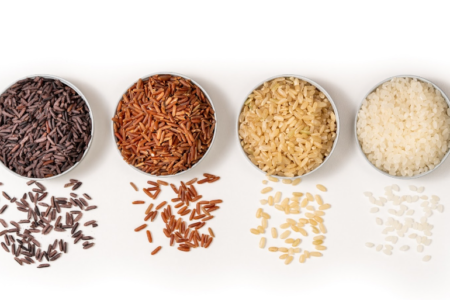
Though it seems few, there are lots of ideas for healthy snacks that will help you study better.
Eating the right foods plays a role in improving productivity, concentration and energy levels. We know this.
But with stress, PMS and fluctuating hormones, it’s easier to head to the sweetest, saltiest, most MSG-laden and most umami item in the vending machine.
So before we go any further into ideas for healthy snacks, it’s important to state here that eating better starts with saying no to these with a good dose of self-discipline and dedication.
As the saying goes: “You are what you eat.” Next, start by thinking of healthy food as brain medicine. And among the top five nutrients that our brain needs to function is protein.
A lack of it would greatly affect our mood, appetite, and energy levels. Protein deficiencies have also been linked to depression, anxiety, ADHD, epilepsy, and a certain type of autism.
The best healthy snacks have to offer our most important body organ a good amount of protein. The good news is they’re more readily available and just as tasty as chips than you think.
Here are ideas for healthy snacks that will keep your brain energised and maintain your focus while you’re studying:
Read on for easy ideas for healthy snacks that won’t make you feel guilty but make you feel a lot better:
1. Wasabi peas
Spicy in all the right ways, wasabi peas give our brains the kick it needs to rev up. This Japanese snack is filled with protein and fibre which will help fill your stomach up so you can stay full for longer too.
They taste great alone or you can pair them with your favourite trail mix.
Some might say wasabi peas count as one of the ideas for healthy snacks given their rich protein content. This doesn’t mean you should replace a proper protein meal, it just means they’re great as a balanced snack.
2. Almonds
Almonds, among other types of nuts like pistachios and macadamias, are known as brain foods for a reason.
Experts say just consuming five pieces of almonds every morning can help boost overall brain power.
Other than being rich in protein, this superfood also contains a rich source of antioxidants which protects you from stress and inflammation in your body.
3. Edamame
Edamame beans are whole, immature soybeans and are known as vegetable-type soybeans.
You often find edamame served in Japanese restaurants, steamed with a pinch of salt and served as an appetiser or added to salads.
Beans are the best plant-based protein sources for vegans. Edamame contains high amounts of many vitamins and minerals, as well as fibre.
Get them at the frozen section, zap them in the microwave and you’ve got something great (and odour-free) to munch on in the library.
4. Sweet potato
Sweet potatoes are a good source of provitamin A which helps protect eye health. It’s reported that this root vegetable contains choline too, which helps with muscle movement, learning, and memory.
Try out this simple recipe for oven-baked sweet potato fries. Feeling more adventurous? Check out these other sweet potato recipes you can make at home.
5. Broccoli and hummus
We all know what broccoli is and the various benefits it contains such as fibre, vitamin K to help with improving memory and high antioxidant content which prevents our body from free radicals.
Instead of eating it alone, try adding hummus as a dipping sauce.
Hummus is a Middle Eastern food that’s commonly used as a spread or a dip. It is made from cooked, mashed chickpeas blended with tahini, lemon juice and garlic.
Follow this quick ten-minute recipe to make your own.
6. Baked okra
Okra, also known as gumbo or ladies’ fingers are a great source of minerals, vitamins, antioxidants, and fibre.
It has a unique texture that some may be put off with – peach-like fuzz on the outside and inside the pod are small, edible seeds.
But don’t judge an okra by its looks. Okras have been found to help prevent cancer, improve heart health and their slime may also help remove toxins from the body.
You can find the recipe for yummy baked okra here.










